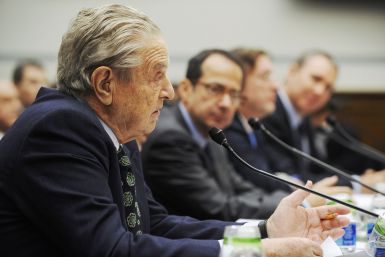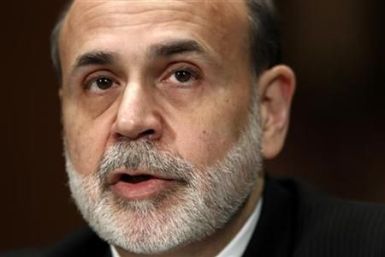A top Federal Reserve official said he would set the bar very high for the central bank to stop short in its planned $600 billion in bond purchases, but that the Fed may need to begin considering a reversal of policy by year end.
Many of the U.S. economic indicators, including the unemployment data on Friday, over the past few weeks have given rise to the false belief that the economy is finally improving.
Data showed on Monday the Chinese trade surplus narrowed in December, easing the conflict between Beijing and Washington over rising U.S. trade deficit even as Chinese President Hu Jintao is scheduled to meet President Obama in the White House on January 19.
One thing's for sure: no one at the Federal Reserve is leaping out of their chair to defend the central bank's mandate to ensure full employment from proposals it focus solely on delivering price stability.
The United States and its leaders are stuck in their own Catch 22. They need the economy to improve in order to generate jobs, but the economy can only improve if people have jobs. They need the economy to recover in order to improve our deficit situation, but if the economy really recovers long term interest rates will increase, further depressing the housing market and increasing the interest expense burden for the US.
In the midst of the buzz and optimism about the economic recovery in 2011, not many are talking about the fact that cost in America may also meaningfully rise, possibly at a faster rate than justified by underlying economic growth.
The sluggish U.S. economy shows signs of gaining strength but still needs a lot of help from the Federal Reserve to get back on track, a top Fed policy maker said on Friday.
The U.S. economy may finally be hitting its stride even if growth remains too weak to put a real dent in the nation's jobless rate, Federal Reserve Chairman Ben Bernanke said on Friday.
The Democratic White House and the Republicans who control the House of Representatives each found the December jobs figures released today mildly encouraging. While the administration, however, took credit for the steady albeit slow improvement, the new Republican chairman of the House Education and Workforce Committee said the plodding economy points up the need to change failed administration policies.
Politicians now prefer to appoint JPMorgan executives to highly-visible positions rather than risk public outrage by choosing their Goldman Sachs counterparts.
In a speech before a congressional committee this morning, Federal reserve Chairman Ben Bernanke warned that it could take years before unemployment falls to normalized levels, thus justifying the continuing need for the central bank’s $600-billion bond-buying scheme
Fed Chairman Ben Bernanke's speech on economic outlook and monetary and fiscal policy before the committee on the budget, U.S. Senate, Washington, D.C., Jan. 7, 2011
The following are highlights from a U.S. Senate Budget Committee hearing on Friday with testimony from Federal Reserve Chairman Ben Bernanke.
The U.S. economy may be finally hitting its stride, even if growth remains too weak to put a real dent in the nation's jobless rate, Federal Reserve Chairman Ben Bernanke said on Friday.
The following are highlights from a U.S. Senate Budget Committee hearing on Friday with testimony from Federal Reserve Chairman Ben Bernanke.
Ben Bernanke will not get an easy pass from U.S. lawmakers on Friday as the Federal Reserve chairman delivers his first congressional testimony since the central bank launched a controversial bond-buying policy.
IBTimes compiles a list of the greatest trades of all time with accompying information that explains the rankings.
A top Republican on Thursday said he will push for legislation paring back the Federal Reserve's mandate to focus solely on controlling inflation, not ensuring full employment.
In this piece, we will examine four of gold's most important rules; the irreversible trends affecting the gold price; and how the consequences of these trends will push gold higher in 2011 and beyond.
President Barack Obama on Wednesday renominated economist and Nobel laureate Peter Diamond to the Federal Reserve Board, sticking with a pick that has already been thwarted by Senate Republicans twice.
Silver and Gold Prices both unwound the last of late Dec.'s gains in early London trade on Wednesday, retreating to $29.20 and $1370 respectively per ounce on what several analysts called profit taking as world stock markets also fell.
The Federal Reserve's second round of quantitative easing (QE2) is pushing oil prices higher, said Andy Xie, a prominent economist.






















